Faculty Job: Myths & Realities – an interview with Erin Sparks
Describe your journey from student to newly appointed faculty
I grew up on the Iowa/Illinois border in the heart of the corn belt. Despite being surround by the golden waves of grain, I did not start working on plants until later in my career. My undergraduate degree was in Biomedical Engineering from Northwestern University. There I specialized in Tissue Engineering and Transport Processes, and worked with Dr. Bill Schnaper in Pediatric Nephrology as both an undergraduate and then technician. For graduate school, I went to Vanderbilt University and received a PhD in Cell and Developmental Biology under the supervision of Dr. Stacey Huppert (now at Cincinnati Children’s Hospital). It wasn’t until my Postdoc that I started to work on plants! When exploring Postdoc positions, I became fascinated by the parallels between plant and animal development. In graduate school I worked on Notch signaling in mice, which is a critical regulator of somitogenesis. During my Postdoc search, I came across a paper from Dr. Philip Benfey’s lab where they identified a lateral root clock (https://science.sciencemag.org/content/329/5997/1306.long) and drew parallels to the process of somitogenesis. This was enough to pique my interest, so I interviewed in the Benfey lab and fell in love with root biology! Now I have been an Assistant Professor at the University of Delaware since 2017.
What inspired you most to pursue your current career?
I am not someone who knew what they wanted to be when they grew up, and science was a big black box for me. I didn’t know any scientists growing up and had no idea what a career in science would look like. So, most of my training and career has been pursuing what interests me, trying different things, and seeing if it is a good fit.
What is the major focus of you research team?
Research in my lab focuses on the development, function, and environmental responses of shoot-borne aerial roots in maize called brace roots. Despite their name, there is very little known about these specialized roots. We use a variety of approaches from biomechanics and plant modeling to genetics and molecular biology. We have a suite of amazing collaborators that allow us to ask questions across multiple disciplines to answer questions about brace roots and beyond. As I write this, I am in Montpellier, France working with collaborators at CIRAD to develop functional structural plant models for brace root function. When I return, I am hosting Dr. Amanda Rasmussen in the lab to do some root physiology experiments. Truly interdisciplinary work is my passion and I love to collaborate! My philosophy = Collaboration > Competition.
Truly interdisciplinary work is my passion and I love to collaborate! My philosophy = Collaboration > Competition
Which conferences do you regularly attend?
I try to attend the Maize Genetics Conference, Phenome, and American Society of Plant Biologists Meetings on a yearly basis. However, my lab is very new, so I have started to limit my travel to meetings so that I can spend more time with my trainees. That being said, Liz Haswell from WashU and I are organizing a symposium on Engineering Plant Biology at the upcoming Society for Engineering Science Meeting in October 2019. SES has not traditionally covered topics from plant biology, so we are very excited to organize this symposium.
About your job hunt
How long did it take you from the beginning of searching faculty jobs to get one?
I started planning for the faculty search in 2014 (3 years into my postdoc), but sent out my first applications in 2015. In my first year on the job market, I had 3 phone interviews that were a disaster! As I mentioned above, I haven’t always known what I wanted to do and so I struggled to craft my future research direction. These phone interviews were painful, but really important for me to fine-tune my research statement and change my thinking about the job market. In the first year, I had focused on the research, which I realized was not enough. So… I applied for jobs again in 2016, and this time had 4 phone interviews all of which turned into on campus interviews. I received an offer from the University of Delaware in March 2017 and started in June of that year.
During your job hunt, what did you learn about yourself or about the process of finding an academic job?
One of the struggles I had while on the job market was due to my diverse training background. I view my training background as a huge asset to my work, but many of the places I interviewed viewed this as a negative – that I don’t know what I want to do or I will change fields again. I found myself having to justify my career path quite often.
Based on your experiences and the feedback you got during the job search, what do you think are key skills and accomplishments that a successful candidate must demonstrate?
Having now sat on both sides of the faculty search, I realize that search committees are not only looking for great scientists, but also great colleagues. Is this someone you would want to collaborate with? Will they contribute to teaching? Departmental committees? While clique, I found interpersonal skills to be key to interviewing. Also, be aware of potential biases you may display while interviewing. Consider using they/them when giving examples, find a neutral way to identify students to answer questions if you are teaching a class (e.g. not selecting people wearing as skirt), etc.
Advice for job applicants
Beyond your research and publications, how did you prepare for the academic job hunt during your postdoc?
I think networking is really important for job hunt preparation. As a scientist new to the plant community when I started my postdoc, I found myself on the “outside” during meetings. I felt like everyone knew everyone else, and I was the odd person out. During the first year (2014) when I decide to pursue an academic job, I did two things – 1) I started a Twitter account and 2) I started attending conferences. Twitter gave me an “in” into the plant biology community and attending conferences enabled me to meet Tweeps in person. This is what networking looked like for me, but it can look different for everyone.
How did you prepare for the actual job hunt? How did you identify potential opportunities, prepare your application materials, and prepare for interviews?
I will refer you to a post I wrote directly after the job search for the Community of Minds on “Reflections on the Academic Job Market”.
About you as a faculty member
What were the initial challenges to starting your own lab?
The start of my job/lab had a few hiccups – most administrative. The major one was due to a miscommunication within the university that resulted in a part of my contract not being filled. Although it took almost 6-months, this issue was resolved. The other part is just figuring out who to ask for what and what questions to ask. I had this surreal moment where I had to take a safety training in order to get a key to my office, but I couldn’t take safety training without a lab affiliation, and my lab didn’t exist in the system! Now 2 years in, I still find things I didn’t know I was supposed to do or have no idea how to do!
What qualities do you look for when recruiting for your lab?
Honestly, I’m still trying to figure out this part and I think it will come with experience. A major qualification for me is that you are interested in the work we are doing.
Whom do you like to thank for supporting and inspiring you along this journey?
Ha – you have to watch out with this question – I wrote a 4-page acknowledgements section in my thesis! My thesis committee told me they had “never seen such long acknowledgements”.
Absolutely my parents for always believing in me. I have failed so many times in my career – I failed a course in undergraduate, I failed my qualifying exam in graduate school, I’ve had more rejected grants/papers/etc than I can count. My parents have never been anything but proud and supportive.
My partner is a huge supporter both inside and outside the lab. He has moved and started over in his career multiple times to support my career. He has spent many night and weekend providing experimental assistance during my graduate and postdoc work, and now he is my lab/field manager. He views the lab as our shared goals and I could not be more grateful for his support.
I’m also fortunate to have a wonderful group of women colleagues with whom I can text questions/advice/etc. This peer group has been such an important part of my mental health for starting this job. They allow me to vent, they provide advice and often wine. They are group of women who have succeeded in academia and are my daily inspiration.
If prospective students and postdocs want to reach you, where can they contact you and read about your work?
Email: esparks@udel.edu
Website: http://sites.udel.edu/canr-sparkslab/
Twitter: @ErinSparksPhD
Conferences! If you see me at a meeting, please come say hello.
One last note – if you are a new PI working on plants and want to connect with other new plant PIs, we have a Slack channel! Reach out if you want to be added.



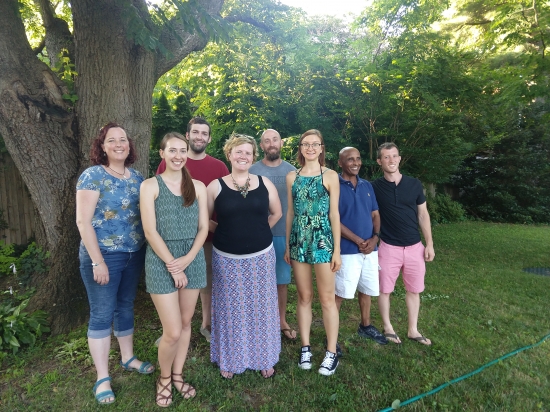
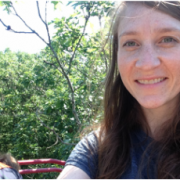
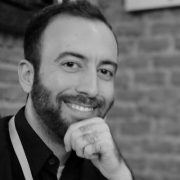
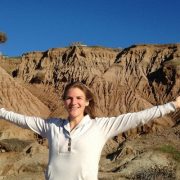
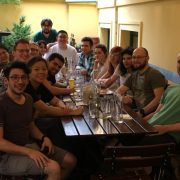
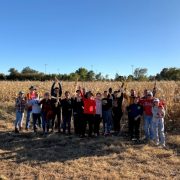
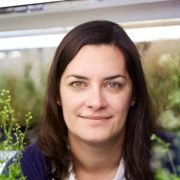
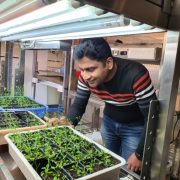
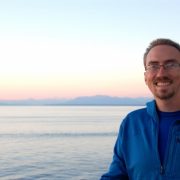
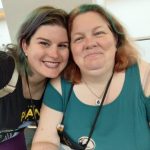
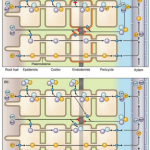
Leave a Reply
Want to join the discussion?Feel free to contribute!